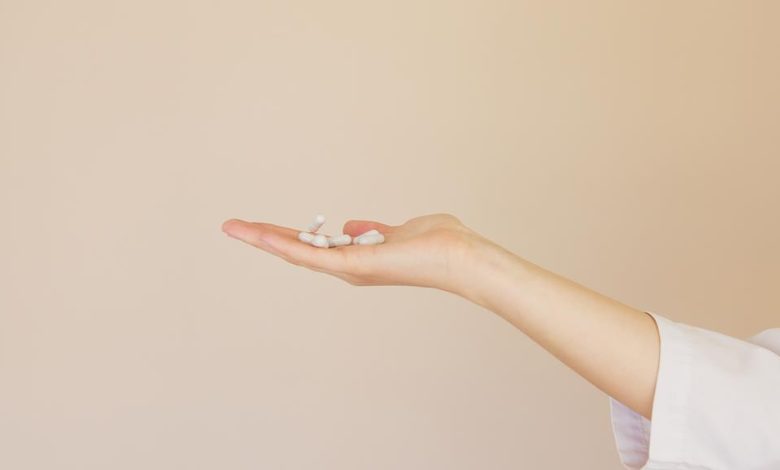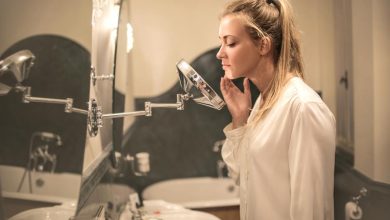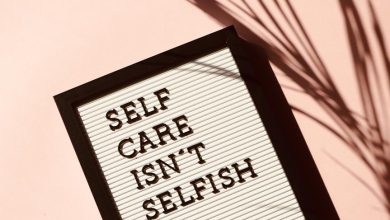Vitamins to Heal Your Acne

As someone who has battled with acne for years, I know the frustration and self-consciousness it brings. But I’ve discovered that healing goes beyond skincare routines. It’s about nourishing our bodies from within. That’s where vitamins come in. In this article, I’ll show you the power of vitamins in healing acne and improving overall skin health. From vitamin A to omega-3 fatty acids, zinc, and selenium, we’ll explore how these vitamins can reduce inflammation, prevent breakouts, and promote healing. Let’s take proactive steps towards clearer, healthier skin.
Key Takeaways
- Vitamin A is essential for normal skin cell shedding and acts as an anti-inflammatory for acne. It is recommended for individuals with inflammatory acne.
- Omega-3 fatty acids, particularly EPA, inhibit inflammatory chemicals responsible for acne breakouts. Supplementing with 2 grams of EPA omega-3s per day is recommended.
- Zinc is an important antioxidant and anti-inflammatory for the skin. It assists with the metabolism of omega-3 fatty acids and is recommended as part of a basic supplement regimen for acne.
- Selenium, when taken along with other antioxidants and zinc, helps prevent inflammation of acne. It plays a role in controlling glutathione, an important factor for acne.
The Power of Vitamin A
As someone who has struggled with acne, I can attest to the power of vitamin A in healing and preventing breakouts. Vitamin A, belonging to the class of compounds called retinoids, has been found to have numerous benefits for acne healing. It is essential for the normal shedding of dead skin cells, preventing the build-up of skin cells that cause acne. Additionally, vitamin A acts as an anti-inflammatory for the skin, calming swollen, red, and sore acne breakouts. Exploring the effectiveness of topical vitamin A treatments is also important. These treatments, such as retinol creams or serums, can help improve the appearance of acne and reduce the formation of new breakouts. Incorporating vitamin A into your skincare routine can be a powerful tool in the fight against acne.
Harnessing the Benefits of Omega-3 Fatty Acids
While exploring natural remedies for acne, I have discovered the incredible benefits of harnessing omega-3 fatty acids. Omega-3 fatty acids play a crucial role in overall skin health and can have a significant impact on acne severity. Here are some key points to consider:
- Omega-3 fatty acids, particularly eicosapentaenoic acid (EPA), are potent anti-inflammatory agents found in fish and seafood.
- These fatty acids inhibit the production of inflammatory chemicals that can contribute to acne breakouts.
- Incorporating omega-3 fatty acids into your diet or taking supplements can help reduce inflammation and improve acne symptoms.
- It is recommended to supplement with 2 grams (2,000 mg) of EPA omega-3s per day for individuals with inflammatory acne.
- Consult with a physician before starting fish oil supplements, especially if pregnant.
Zinc: A Key Player in Acne Healing
During my research on acne healing, I discovered that zinc plays a crucial role in improving acne symptoms and promoting skin health. Zinc is an essential mineral that is involved in various physiological processes in the body, including immune function, cell growth, and inflammation regulation. When it comes to acne, zinc has been found to have a significant impact on overall skin health. Studies have shown that zinc supplements can effectively reduce acne severity and inflammation. Zinc helps regulate sebum production, which is a key factor in the development of acne. Additionally, zinc has antimicrobial properties, which can help kill the bacteria that contribute to acne breakouts. Overall, incorporating zinc supplements into your acne treatment regimen may be an effective way to promote clearer, healthier skin.
The Role of Selenium in Acne Treatment
I believe that selenium plays a crucial role in acne treatment, as it works synergistically with other antioxidants, such as zinc, to prevent inflammation and improve overall skin health. When it comes to incorporating selenium into your acne treatment regimen, there are two main approaches: consuming selenium-rich foods and taking selenium supplements.
Selenium-rich foods:
- Grains, nuts, and seafood like salmon and halibut are excellent sources of selenium. Including these foods in your diet can promote overall skin health and support acne healing.
Selenium supplements:
- Taking selenium supplements can help reduce inflammation in acne. By supplementing with selenium along with other antioxidants and zinc, you can enhance the effectiveness of your acne treatment.
Incorporating selenium into your acne treatment plan can be a beneficial step towards achieving clearer, healthier skin. However, it is always important to consult with a healthcare professional before starting any new supplements.
Topical Treatments for Acne Marks
To effectively treat acne marks, I recommend using topical lightening or brightening creams. These creams can help fade red acne marks and improve the overall appearance of the skin. Additionally, Isolaz Photofacial treatment has shown effectiveness in treating acne marks. This treatment uses a combination of vacuum technology and broadband light to target and reduce the appearance of acne marks. In some cases, laser treatments or microneedling may be necessary for dented acne marks. These treatments can help improve the texture and smoothness of the skin. It is important to consult with a dermatologist to determine the best treatment option for your specific acne marks. Below is a table summarizing the effectiveness of Isolaz Photofacial treatment and laser treatments for dented acne marks:
| Treatment | Effectiveness |
|---|---|
| Isolaz Photofacial treatment | High |
| Laser treatments | Moderate |
| Microneedling | Moderate |
Supplements and Skincare for Oily Skin and Acne
Before starting any new skincare regimen or taking supplements, it is important to consult with a dermatologist for personalized guidance on managing oily skin and acne. When it comes to supplements and skincare for oily skin and acne, there are a few key things to consider:
- Cutting out dairy for acne: Some studies suggest that dairy products, particularly milk, may contribute to acne breakouts. Cutting out dairy or switching to alternatives like almond milk may be beneficial for individuals with acne-prone skin.
- Benefits of drinking water for acne: Staying hydrated by drinking 8 glasses of water daily can help maintain healthy skin. Water helps flush out toxins and keeps the skin hydrated, which can reduce the risk of clogged pores and acne.
In addition to these lifestyle changes, using non-pore clogging skincare products and consulting with a dermatologist can further assist in managing oily skin and acne.
Diet and Skincare for Acne Healing
A balanced diet and proper skincare regimen are essential for acne healing. When it comes to diet, it is important to avoid foods that can trigger acne breakouts. While fermented cod liver fish oil is high in vitamin A, which is beneficial for acne, it is not recommended due to its high iodine content that can actually trigger acne. Instead, Vitamedica’s Healthy Skin supplement is a good alternative as it contains vitamin A, zinc, and selenium. These nutrients are known for their skin-healing properties. Furthermore, treating the skin topically with non-pore clogging skincare products is crucial for acne healing. Consulting with a skincare professional can provide guidance on an effective skincare regimen tailored to your specific needs. It is always important to seek personalized treatment options for acne healing.
| Diet for Acne Healing | Skincare for Acne Healing |
|---|---|
| – Avoid trigger foods | – Use non-pore clogging skincare |
| – Vitamedica’s Healthy Skin supplement | – Seek guidance from skincare professional |
| – Personalized treatment options | – Consistency in skincare routine |
Frequently Asked Questions
Can Vitamins Completely Cure Acne?
Vitamins can be effective in treating acne, but it is important to note that they may not completely cure it. Vitamin supplements, such as vitamin A, omega-3 fatty acids, zinc, and selenium, have been shown to improve acne symptoms. These vitamins help reduce inflammation, promote healthy skin cell turnover, and provide antioxidant support. However, it is best to consult with a healthcare professional to determine the right dosage and to develop a comprehensive treatment plan that includes vitamins and other acne-fighting strategies.
Are There Any Side Effects of Taking Vitamin a for Acne?
Taking vitamin A for acne can have potential side effects. It is important to consult with a physician before starting vitamin A supplementation, especially if pregnant. The recommended dosage for vitamin A is 10,000 ius per day. However, excessive intake can lead to toxicity symptoms such as dry skin, dizziness, and nausea. It is essential to follow the recommended dosage and seek professional guidance to avoid any adverse effects. Additionally, exploring alternative acne treatments and consulting with a dermatologist can provide personalized solutions for acne healing.
Can Omega-3 Fatty Acids Worsen Acne Breakouts?
Omega-3 fatty acids actually have benefits for acne, rather than worsening breakouts. They are found in fish and seafood, particularly oily, ocean fish, and are the best anti-inflammatory found in nature. Omega-3 fatty acids inhibit the inflammatory chemicals responsible for acne breakouts. They are recommended for individuals with inflammatory acne. The best dietary sources of omega-3 fatty acids include fish like salmon and halibut. Incorporating these foods into your diet can help improve acne and promote overall skin health.
How Long Does It Take to See Results From Using Topical Treatments for Acne Marks?
When it comes to using topical treatments for acne marks, the time it takes to see results can vary. It depends on factors such as the severity of the marks and the specific treatment being used. While some people may notice improvements in a few weeks, for others it may take several months. It’s important to be consistent with the treatment and have patience. Consulting with a dermatologist can provide personalized advice and guidance on the best course of action.
Are There Any Dietary Restrictions or Considerations When Taking Supplements for Acne Healing?
When it comes to taking supplements for acne healing, there are certain dietary restrictions and considerations to keep in mind. Your diet can have a significant impact on the severity of your acne, so it’s important to pay attention to what you eat. Additionally, maintaining good gut health is crucial for clear skin. It’s always a good idea to consult with a healthcare professional or dermatologist to get personalized advice on the role of diet and supplements in acne healing.



